Subhas Chandra Bose stood out as one of India’s most influential freedom fighters. His relentless determination to free India from British rule turned him into a national hero. Known for bold actions and his demand for complete independence, Bose inspired millions. This biography explores his early life, political journey, and contributions to India’s fight for freedom.
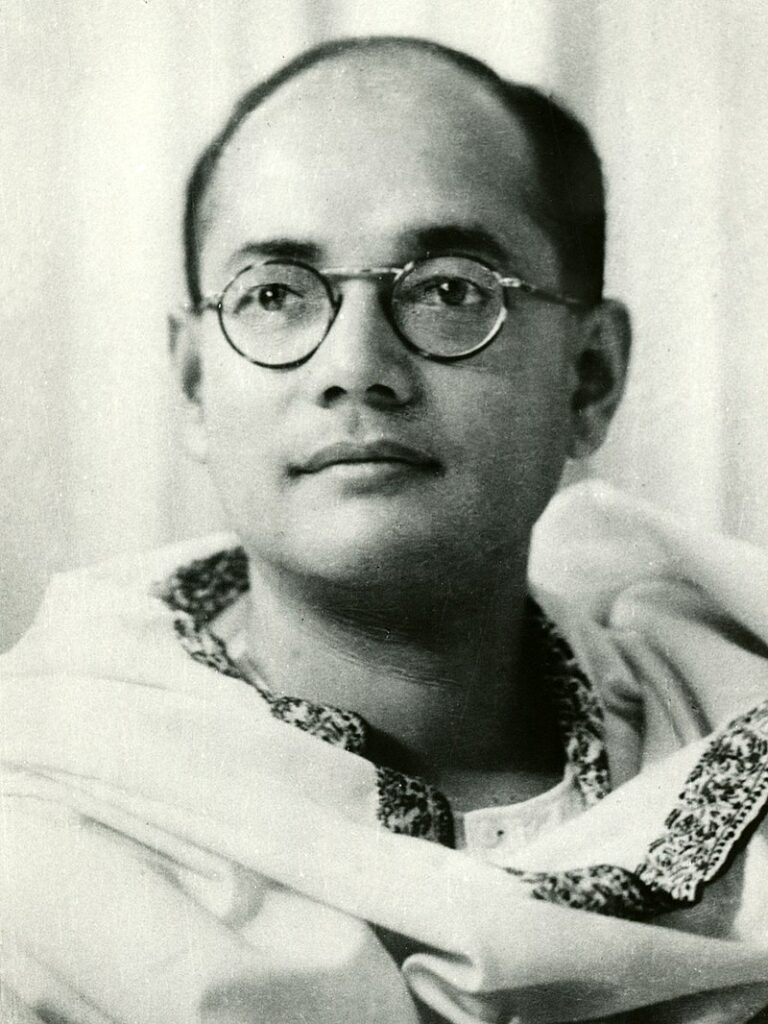
Bose’s Early Life and Education
Subhas Chandra Bose was born on January 23, 1897, in Cuttack, Odisha. His father, Janakinath Bose, worked as a lawyer, and his mother, Prabhavati Devi, raised their large family. Bose grew up with eight brothers and six sisters, in a disciplined environment that shaped his leadership skills and determination.
From a young age, Bose displayed intelligence and a strong sense of leadership. He excelled in his studies at Ravenshaw Collegiate School in Cuttack and later went on to attend Presidency College in Calcutta (now Kolkata). During his college years, he became increasingly interested in philosophy and politics, heavily influenced by the teachings of Swami Vivekananda, a spiritual leader who encouraged Indians to fight for freedom.
In 1919, Bose traveled to England to study at the University of Cambridge. His family wanted him to join the Indian Civil Service (ICS), a prestigious job at the time. He passed the ICS examination with high marks in 1920. However, rather than work for the British government, Bose resigned from the ICS in 1921, deciding to dedicate himself to India’s freedom struggle.
Bose’s Early Political Career
After returning to India, Bose joined the Indian National Congress (INC), which led the movement for Indian independence. His energy and dedication quickly attracted attention. He worked closely with leaders like Mahatma Gandhi and Jawaharlal Nehru. Though he admired Gandhi’s leadership, Bose disagreed with Gandhi’s belief in non-violent resistance. Instead, Bose believed India needed a more aggressive approach.
Bose’s views clashed with other Congress leaders. While Gandhi pushed for peaceful protests and negotiations, Bose argued for direct action. This led to tensions within the party.
In the late 1920s, Bose became the mayor of Calcutta, where he earned respect and increased his popularity. He continued to rise within the INC, known for his determination and ability to inspire people.
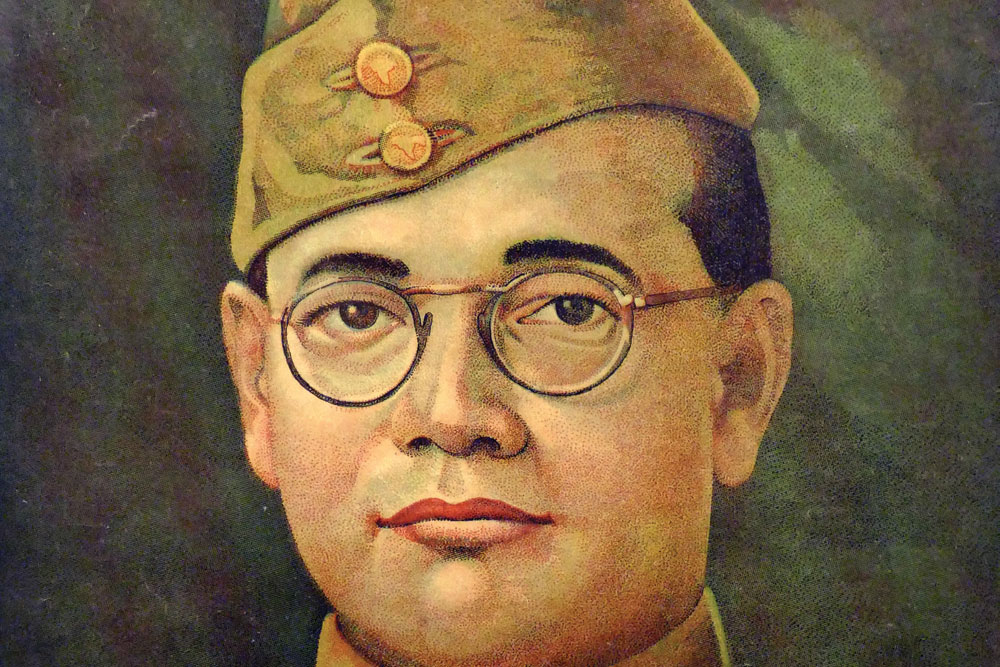
Bose’s Formation of the Forward Bloc
By the late 1930s, Bose’s differences with Gandhi’s methods became clear. In 1938, he was elected president of the Indian National Congress. But his belief in using force to gain independence conflicted with Gandhi’s ideas. After being re-elected in 1939, Bose resigned due to disagreements with the party’s leadership.
Not discouraged, Bose founded the Forward Bloc in 1939. The Forward Bloc aimed to unite Indians who supported more radical actions to gain independence. Bose wanted a strong, united effort to overthrow British rule, and he was willing to work with any nation or group that shared this goal.
World War II and Bose’s Escape
When World War II started in 1939, Bose saw an opportunity to strike against British rule. He believed Britain’s involvement in the war made them vulnerable, and India could push for independence during this time.
In 1941, the British placed Bose under house arrest because of his anti-British activities. But Bose escaped from his home in disguise, managing to flee to Germany. His daring escape showed his unwavering commitment to the cause.
In Germany, Bose sought support from Adolf Hitler, believing Germany could help India fight the British. Although Hitler offered little help, Bose established contacts with Japanese leaders, who were also fighting against British forces in Asia.
The Indian National Army (INA)
In 1943, Bose traveled to Japan, where he gained greater support for his cause. He took charge of the Indian National Army (INA), which had been formed by Indian soldiers captured by Japanese forces during the war. Under Bose’s leadership, the INA grew in strength and purpose, with soldiers motivated to fight for India’s freedom.
Bose introduced the slogan “Jai Hind,” meaning “Victory to India,” which became a powerful rallying cry. The INA launched a military campaign against British forces in northeastern India and Burma (now Myanmar). Bose’s leadership energized his soldiers, who saw him as a brave and committed leader. They called him “Netaji,” a term of respect meaning “leader.”
The End of the Campaign
Despite the INA’s efforts, the campaign did not achieve its goals. By 1945, British and Allied forces gained control as World War II turned in their favor. Japan surrendered, which left the INA without critical support. Many INA soldiers were captured, and the movement lost its momentum.
Even though the military campaign failed, Bose’s leadership and determination left a lasting impression. He inspired many Indians to join the independence movement and took bold steps toward freeing India from British control.
The Mystery of Bose’s Death
Subhas Chandra Bose’s death remains one of the most debated events in Indian history. Official reports claim Bose died in a plane crash on August 18, 1945, in Taiwan. However, many of his followers refused to believe this account. Some believed Bose had survived the crash and was living in hiding, waiting for the right time to return.
Numerous investigations have been conducted over the years to uncover the truth about his death, but no conclusive evidence has been found. The mystery remains, adding to the intrigue surrounding Bose’s life and legacy. Despite the uncertainty, people continue to honor him as a hero who gave everything for India’s freedom.
Bose’s Legacy and Impact
Subhas Chandra Bose’s contributions to India’s independence movement remain significant. His strong leadership and commitment to the cause of freedom inspired millions of Indians. Even though his methods differed from those of Mahatma Gandhi, Bose played a key role in challenging British rule and motivating others to join the fight.
Bose’s slogan “Jai Hind” is still used in India today. His birthday, January 23, is celebrated as Netaji Subhas Chandra Bose Jayanti, and many statues, schools, and institutions are named in his honor. These monuments show the respect and admiration that Indians have for him.
Bose’s ability to unite people and his efforts to seek international alliances for India’s cause showcased his forward-thinking vision. He believed India needed full independence and was willing to make difficult choices to achieve this goal. His life serves as a reminder of the courage and determination required to bring about change.
Conclusion
Subhas Chandra Bose lived his life with one clear purpose: to see India free from British rule. From his early days as a student to his leadership of the Indian National Army, Bose fought tirelessly for his country’s independence. He made bold decisions and took risks, showing his commitment to the cause even when faced with difficult choices.
His legacy as “Netaji” continues to inspire people across India. Bose’s bravery, leadership, and vision for a free India have made him one of the most important figures in the country’s history. His story remains a testament to the power of determination and the sacrifices made in the fight for freedom.

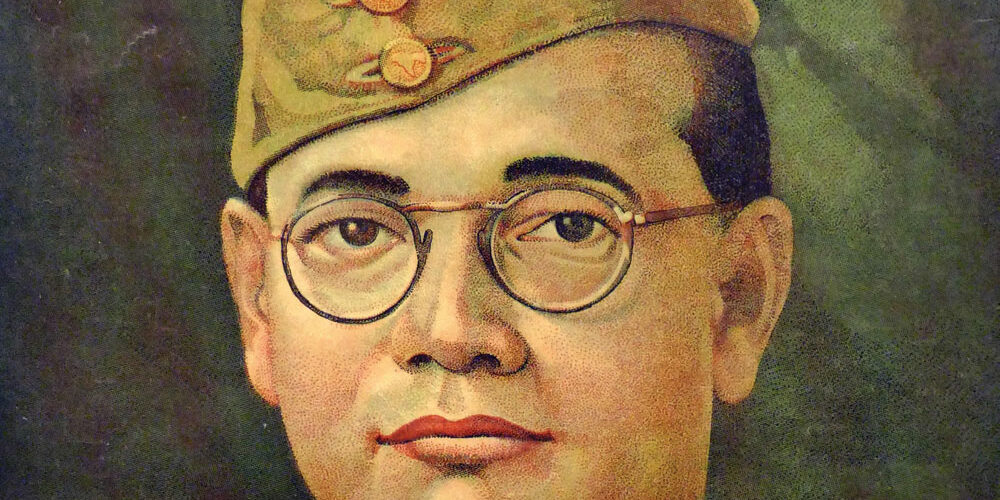

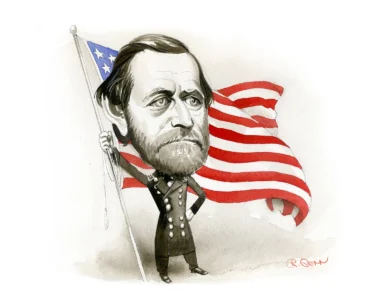
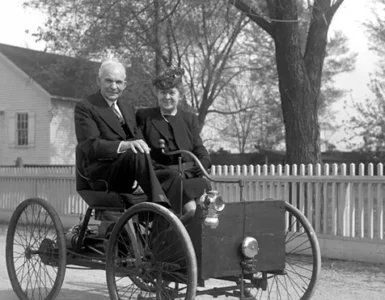
Add comment